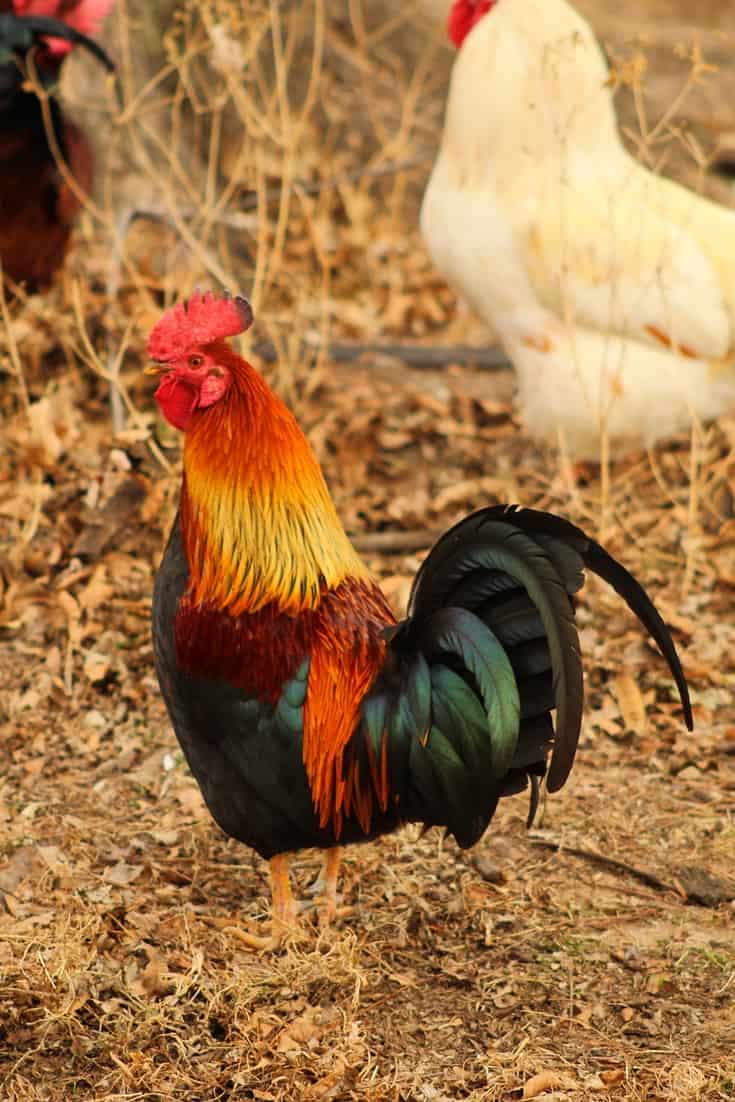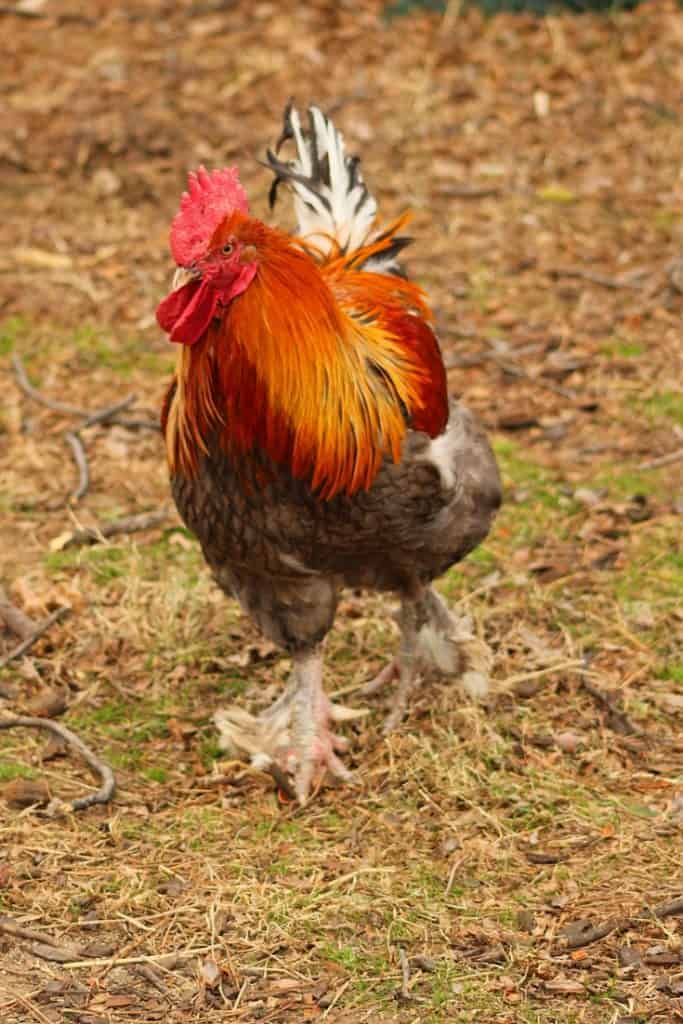Can Chickens Lay Eggs Without A Rooster? The Truth Revealed!
Can chickens lay eggs without a rooster? The answer, surprisingly, is a resounding yes. Hens are perfectly capable of producing eggs regardless of whether a rooster is present, a fact rooted in their biological design.
For anyone venturing into the world of poultry keeping or simply curious about the avian egg-laying process, understanding the intricacies of how chickens produce eggs is paramount. This article dives deep into the science behind egg production, dispelling common myths and providing evidence-based insights. We will explore the biological mechanisms at play, compare fertilized versus unfertilized eggs, and, of course, address the fundamental question: Can chickens produce eggs without a rooster? Let's unravel the mysteries of the chicken coop!
| Topic | Egg Production in Chickens |
| Description | A comprehensive analysis of the biological processes, nutritional aspects, and environmental factors involved in egg production by chickens, focusing on the ability of hens to lay eggs without a rooster. |
| Key Aspects |
|
| Reference Website | Poultry World |
Egg production in chickens is a remarkable biological process, entirely independent of a rooster's presence. Female chickens, scientifically known as hens, are essentially pre-programmed to lay eggs as a fundamental part of their reproductive cycle. This intricate process begins when a hen achieves sexual maturity, typically somewhere between 18 and 24 weeks of age, although this timeframe can fluctuate depending on the specific breed.
- Who Is Vin Diesels Partner Exploring Paloma Jimenezs Life
- Katmovie Movie Guide Features Risks Alternatives 2024
The journey of an egg within a hen's body is a fascinating one, comprised of several distinct stages. It all begins with the ovary, where a yolk is released. This yolk then embarks on a journey through the oviduct, a complex system where it's progressively enveloped in layers. First, it's wrapped in albumen, commonly known as the egg white. Next, a membrane is carefully added, and finally, the familiar hard shell is deposited. This entire process is relatively quick, taking around 25 to 26 hours from start to finish. Once the egg is completely formed, it's ready to be laid by the hen, a testament to the efficient machinery of nature.
The frequency of egg-laying, a crucial aspect of chicken keeping, is subject to various influences. Breed, age, diet, and overall health all play significant roles in determining how often a hen will lay. For instance, high-producing breeds like the White Leghorn can achieve impressive feats, laying up to 300 eggs per year. Conversely, other breeds might produce fewer eggs annually. Proper care, including a well-balanced diet and a healthy living environment, is absolutely essential for maintaining optimal egg production, ensuring both quantity and quality.
A crucial question often arises in the chicken-keeping community: Are eggs laid without a rooster fertilized? The simple answer is no. Eggs laid by hens that do not have access to a rooster are unfertilized, and therefore, they cannot develop into chicks. Fertilization, the critical step for producing a new life, only occurs when a rooster mates with a hen, enabling the rooster's sperm to fertilize the egg while it's still within the hen's oviduct.
- Desiremoviessoy Your Guide To Movie Streaming Entertainment
- Inside Gloria James Life The Inspiring Story Behind Lebron
Unfertilized eggs are perfectly safe for human consumption and, in fact, constitute the vast majority of eggs that we purchase and eat. They offer the same nutritional benefits and health advantages as fertilized eggs, but they lack the potential for embryonic development. This makes them an excellent, readily available source of essential nutrients.
The question of whether you can eat fertilized eggs often comes up. The answer is yes, fertilized eggs are safe to eat. However, you must consider a crucial factor: refrigeration and consumption before the embryo begins to develop. In commercial egg production, roosters are typically not kept with hens, resulting in almost exclusively unfertilized eggs in the marketplace.
While roosters are not necessary for egg production, their presence is essential for producing fertilized eggs, which are crucial if your goal is to hatch chicks. Hens will diligently lay eggs whether a rooster is present or not. Roosters primary roles within a flock include fertilizing eggs and acting as guardians, protecting the hens from potential predators.
The advantages and disadvantages of keeping a rooster are important considerations for any chicken keeper. The presence of a rooster provides valuable benefits, such as flock protection and egg fertilization. However, roosters can also introduce some challenges. They can be quite noisy, territorial, and might be restricted in certain urban environments due to noise ordinances. Carefully weighing these factors is crucial before introducing a rooster to your flock.
Even in the absence of a rooster, there are numerous effective strategies to ensure your hens remain healthy and maintain a robust egg-laying capacity. Proper nutrition, adequate lighting, and a stress-free environment are essential pillars in the effort to maximize egg production.
The nutritional foundation for egg-laying hens is of utmost importance. They require a balanced diet that's rich in protein, calcium, and a spectrum of other vital nutrients to produce high-quality eggs. Providing hens with a commercial layer feed specifically formulated for egg-laying is highly recommended. Additionally, incorporating crushed oyster shells or limestone into their diet is beneficial, ensuring an adequate intake of calcium, which is crucial for strong eggshells. This proactive approach contributes significantly to both the health of the hens and the quality of the eggs produced.
Light exposure plays a pivotal role in regulating a hen's reproductive cycle. Hens require a consistent 14-16 hours of light per day to maintain optimal egg production. During the winter months, when natural daylight hours are shorter, supplemental lighting becomes crucial. Utilizing artificial light can help to maintain consistent egg-laying patterns, ensuring a steady supply of eggs even when natural light is limited.
The eggs laid by hens without a rooster are just as nutritionally valuable as those produced by hens that have access to a rooster. These unfertilized eggs are a fantastic source of high-quality protein, essential vitamins, and a range of vital minerals, making them a valuable and healthy addition to any diet.
Unfertilized eggs contain essential nutrients, including vitamin D, various B vitamins, selenium, and healthy fats. They're also low in calories, making them a versatile ingredient that can be incorporated into a wide range of dishes. From classic omelets and scrambles to delicious baked goods and refreshing salads, unfertilized eggs provide both nutritional value and culinary flexibility.
A common question is whether free-range eggs are healthier. Studies suggest that eggs from free-range or pasture-raised hens may have higher levels of omega-3 fatty acids and vitamin E when compared to conventionally raised hens. This difference is attributed to the hens' access to a more diverse diet and their natural foraging behaviors, which naturally enhance the nutritional profile of their eggs.
Many misconceptions surround chicken egg production. Here's a breakdown of some common myths and their corresponding facts:
- Myth 1: Hens need a rooster to lay eggs. Fact: Hens will lay eggs regardless of the presence of a rooster.
- Myth 2: Fertilized eggs are more nutritious than unfertilized eggs. Fact: There is no significant nutritional difference between fertilized and unfertilized eggs.
- Myth 3: Older hens stop laying eggs completely. Fact: While egg production may decrease with age, older hens can still lay eggs, albeit at a slower rate.
Here are some frequently asked questions about chicken eggs:
Q: How long do hens lay eggs?
Hens generally remain productive egg-layers for approximately 2 to 3 years. However, some hens can continue laying eggs for several additional years, though their egg production rate might decrease. Proper care and nutrition, including a balanced diet and a suitable environment, are critical factors that can contribute to extending their laying period.
Q: Can I eat eggs from my backyard chickens?
Yes, you can safely eat eggs from your backyard chickens, assuming they're properly stored and consumed before their expiration date. Backyard eggs often have a richer flavor and boast brighter yolks compared to those purchased from a store. This enhanced flavor and color is often a direct result of the hens' diet and overall health.
According to the Food and Agriculture Organization (FAO), global egg production reached an estimated 76 million tons in 2020. The United States is a leading egg producer, with an estimated 9.5 billion eggs produced annually. These figures highlight the significance of eggs as a worldwide staple food source, underlining their essential role in diets around the globe.
China leads the world in egg production, followed by the United States, India, and Brazil. The escalating demand for eggs, driven by their nutritional value and affordability, has propelled substantial growth within the global egg industry.
Environmental factors can also have a significant impact on egg production in chickens. Temperature, humidity, and stress levels all play a role. Extreme heat or cold can reduce egg-laying efficiency, as can overcrowding or poor ventilation within the coop. Ensuring a comfortable and safe environment is crucial for optimal egg production.
To create an ideal environment for egg-laying hens, consider these essential elements:
- Maintain a clean and well-ventilated coop.
- Provide nesting boxes for each hen.
- Ensure access to fresh water and a balanced diet.
- Minimize stress by keeping the flock in a quiet, secure area.
In conclusion, chickens can undoubtedly produce eggs without a rooster. Hens are biologically programmed to lay eggs as part of their natural reproductive cycle, and the presence of a rooster is only crucial for fertilization. By understanding the biology of egg production and providing your hens with the appropriate care, you can successfully maintain a steady supply of fresh, nutritious eggs.
- Peyton Chris List Inside Their Careers Sibling Bond
- Unveiling Kt Tohum Understanding Combating Bad Seeds

Can Chickens Lay Eggs Without A Rooster red rooster Pampered Chicken

Can Chickens Lay Eggs Without A Rooster? Pampered Chicken Mama

How Do Chickens Lay Eggs Without A Rooster?